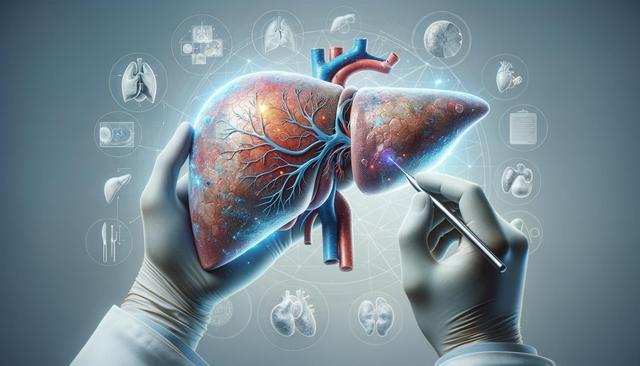What Is Genital Psoriasis and Why Awareness Matters
Genital psoriasis is a form of chronic skin inflammation that affects the sensitive areas around the genitals. While it shares characteristics with other types of psoriasis, such as red, inflamed patches and scaling, it often presents differently due to the delicate nature of the skin in this region. Genital psoriasis symptoms can include redness, itching, discomfort, and sometimes even pain during physical activity or intimacy. Because of its location, many people feel embarrassed or hesitant to seek help, which can delay diagnosis and treatment.
Raising awareness through videos and online resources can help reduce the stigma and encourage people to consult a healthcare provider. Visual guides and expert explanations provide clarity on what to expect and how to manage it. These resources also help differentiate genital psoriasis from other common conditions in the area, such as fungal infections or contact dermatitis, which are often confused due to overlapping symptoms.
Recognizing Genital Psoriasis Symptoms
Recognizing the specific signs of genital psoriasis is crucial for early and accurate diagnosis. Unlike psoriasis on other parts of the body, genital psoriasis symptoms may appear less scaly and more red or shiny due to the moist environment of the genital area. Common symptoms include:
- Persistent redness and inflammation
- Itching or burning sensations
- Discomfort during physical activity or intimate contact
- Smooth, non-scaly patches on the skin
Due to the similarity of these symptoms with other skin issues, skin condition misdiagnosis is a frequent concern. This is where visual content and dermatology warning signs discussed in videos can play a key role. They help individuals identify whether their symptoms align with genital psoriasis or another issue, prompting them to seek professional advice for confirmation.
Common Challenges in Diagnosing Psoriasis in Sensitive Areas
Psoriasis diagnosis tips often emphasize the importance of a thorough clinical examination and patient history. However, genital psoriasis presents diagnostic challenges due to its atypical appearance and the private nature of its location. Many individuals are reluctant to discuss symptoms related to their genitals, leading to delays in proper diagnosis. Additionally, some healthcare providers may not immediately recognize genital psoriasis if they are more accustomed to the classic presentation on elbows or knees.
Misidentifying genital psoriasis as a yeast infection, eczema, or sexually transmitted infection is not uncommon. This can result in inappropriate treatments that fail to address the underlying condition. Dermatology warning signs that help distinguish genital psoriasis include:
- Lack of response to antifungal or antibacterial treatments
- Recurrent inflammation despite hygiene efforts
- History of psoriasis elsewhere on the body
Videos featuring expert dermatologists can offer valuable psoriasis diagnosis tips and visual cues that improve both patient and provider understanding, reducing the likelihood of skin condition misdiagnosis.
Treatment Options for Psoriasis in the Genital Area
When it comes to psoriasis genital treatment, the goal is to reduce inflammation, manage symptoms, and improve quality of life. Because the genital area is particularly sensitive, treatment must be gentle yet effective. Topical therapies are usually the first line of treatment, including low-potency corticosteroids, calcineurin inhibitors, and moisturizers.
For recurring or more severe cases, doctors may recommend:
- Phototherapy using UVB light (under professional supervision)
- Systemic medications for widespread or stubborn symptoms
- Lifestyle changes such as avoiding irritants and wearing breathable clothing
Informational videos often explore these options in detail, helping viewers understand the benefits and limitations of each. They also commonly include patient testimonials and expert guidance that make it easier to navigate the array of treatment possibilities. For those experiencing chronic skin inflammation in sensitive areas, selecting the right psoriasis genital treatment is essential for long-term comfort and symptom relief.
The Role of Digital Resources in Managing Genital Psoriasis
Online videos and educational platforms are increasingly being used to support individuals dealing with genital psoriasis. These resources are especially valuable for those who feel uncomfortable discussing their symptoms in person. By offering a private and accessible way to learn, they empower viewers with the knowledge needed to take the first step toward proper care.
High-quality videos often include:
- Expert commentary from dermatologists
- Step-by-step visuals of common symptoms
- Patient stories that normalize the experience
- Clear explanations of psoriasis diagnosis tips and treatment options
Such content not only addresses medical aspects but also acknowledges the emotional impact of genital psoriasis. By breaking down complex medical information into understandable formats, digital media plays a critical role in reducing anxiety and promoting proactive health behavior. It also acts as a bridge between individuals and dermatology professionals, encouraging timely intervention for chronic skin inflammation.
Conclusion
Genital psoriasis can be a challenging condition, both physically and emotionally. However, with greater awareness and access to educational resources like informative videos, individuals can better understand genital psoriasis symptoms, avoid skin condition misdiagnosis, and seek appropriate care. These tools also offer valuable psoriasis diagnosis tips and insights into effective psoriasis genital treatment options. Whether you are newly experiencing symptoms or managing a chronic case, digital content serves as a supportive guide in navigating this often misunderstood form of chronic skin inflammation.




Leave a Reply